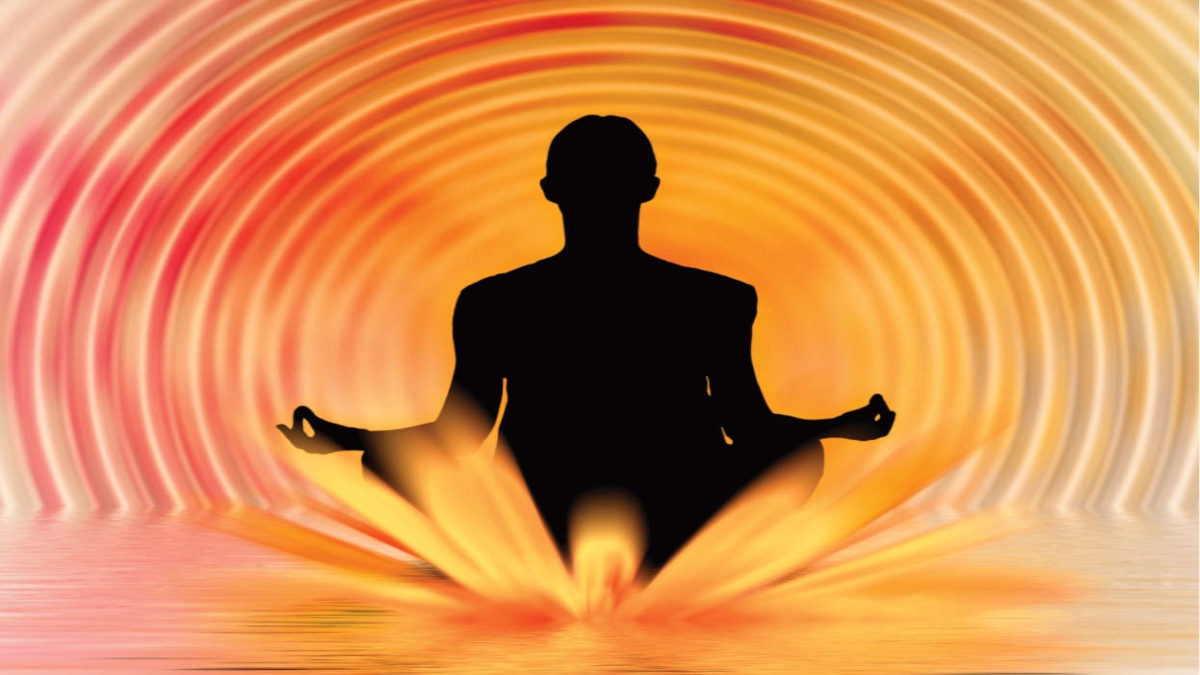


Discipline is integral to the spiritual life, and the more we practise the more it becomes perfectly natural. In time, a virtuous circle develops. As we build our capacity for concentration, we gain controlling power over the mind, which, in turn, augments our ability to concentrate.
To train the mind and keep focused on the Divine, I must “rein in” the wild horses of my thoughts, as the Bhagavad Gita and other scriptures tell us. The key is to consider myself to be a soul, moving away from body-consciousness and a preoccupation with the world outside.
However, spiritual maturity does not happen overnight. We should be gentle and patient. It takes time, practice, and sufficient application to check the mind regularly, rather like watchful parents restraining a little child eager to explore the world.
A daily routine is important. “Early to bed, early to rise” is a useful guide. When we meditate first thing in the morning, the world around us is tranquil; mobile phones and social media are quiet, and we can tap into the powerful atmosphere created by other yogis in meditation.
Coming back to the awareness of being a soul and meditating for brief periods throughout the day allows me to check that I am still on course. Free time is an opportunity for meditation. I should learn to love solitude, and to use it wisely.
There are other helpful steps on the spiritual path, such as actively directing the mind to focus on uplifting thoughts or reading and studying inspiring commentaries.
There are also things to avoid, such as paying too much attention to others: what they are wearing, or even what they may be thinking. And we should not let external disturbances or the attraction of material possessions to divert us, or allow obsessive activity to drain our energy.
Our flaws may ensnare us, particularly anger, attachment, ego, greed and lust. Less obvious are the subtle flaws, which include:
– Showing irritation with others by ignoring, or refusing to speak to, them; this is less volatile than anger, yet damaging.
– Being impressed by a person’s talents or charisma or depending on others (rather than the Supreme Being) for support.
– An obsession with status, or a tendency to boast, or even to insult others; humility is the sign of a truly spiritual person.
– Acquisitiveness (which is never satisfied), while being miserly with what we have.
– Carelessness with energy, thoughts, possessions; evading responsibility.
– Jealousy based on a lack of self-respect and a tendency to compare and compete.
We navigate safely through life by learning constantly to return to the awareness of our inner spiritual being. When we realise how much the Supreme Being is able to give us — knowledge, love, peace and happiness — we have so much love for Him. We leave behind our old habit patterns and our fears, and with courage, dedication, discipline and constancy, we can bring about deep changes in our lives, in the lives of others, and ultimately in the world around us.
B.K. Dr. Nirmala is the director of Brahma Kumaris Rajyoga centres in the Asia-Pacific region.